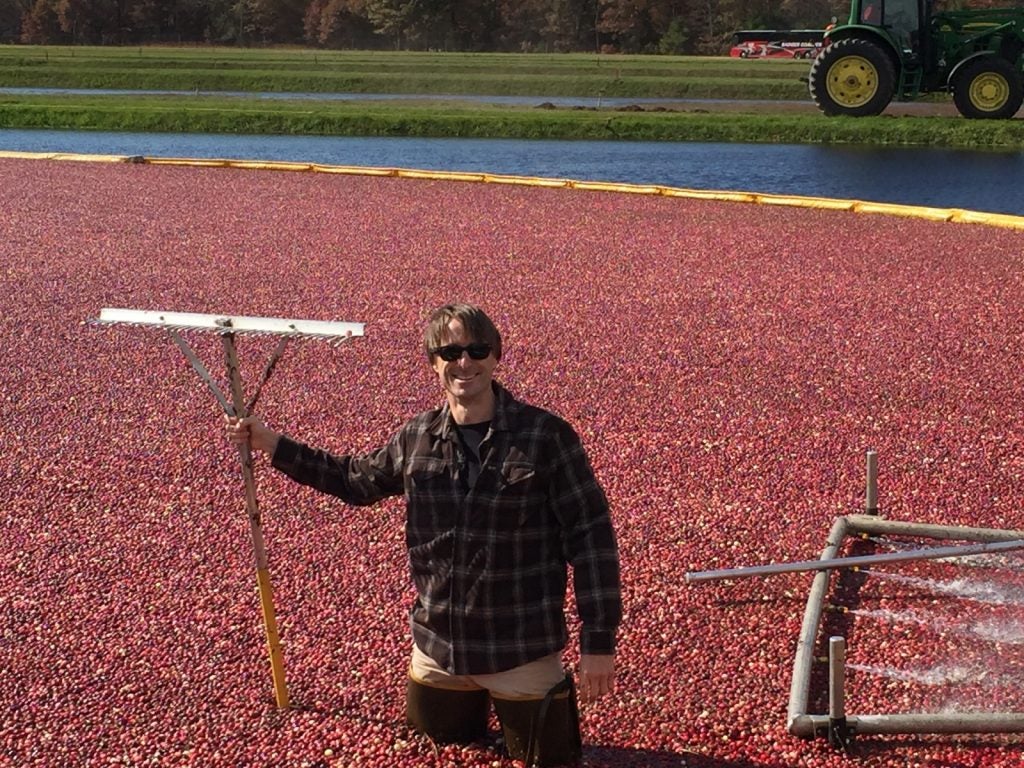Professor Rowley and team say
class of cranberry carbohydrates
could improve UTI treatment
Biomedical Science Professor David Rowley’s findings appear in a recent issue of the Journal of Functional Foods, which is published by the International Society for Nutraceuticals and Functional Foods. The research is sponsored by Ocean Spray, a cooperative of more than 700 cranberry and grapefruit growers based in Lakeville, Mass.
“The cranberry is a specialty crop cultivated only in certain regions like New England. We are glad to be part of this research and reinforce what people have known for some time. If you drink cranberry juice, it is good for you.”
Among Rowley’s team are URI Associate Professor of Biomedical Science Navindra Seeram, who has been cited internationally for his research on blueberries, pomegranate and pure maple syrup and Pharmacy Professor Kerry LaPlante, nationally recognized for her work in the treatment, virulence inhibition, control and prevention of methicillin -resistant Staphylococcus aureus (MRSA) and device-related infections.
“Bacteria cause major issues in the urinary tract, especially for women,” Rowley said. “In many patients we see recurring infections because the bacteria are persistent and resistant to antibiotics.”
But Rowley said his laboratory has taken a step toward understanding molecules that could provide at least part of the answer to the problem of antibiotic resistance.
The typical course of treatment for urinary tract infections is antibiotics.
“They clear out most of the infection, which is commonly caused by E. coli bacteria,” Rowley said. “But some bacteria remain shielded or protected by biofilms. Since these bacteria remain, they re-seed the infection.”
Biofilms are groups of microorganisms in which cells stick to each other on a surface.
Rowley’s research found that a class of complex carbohydrates, called oligosaccharides, could inhibit biofilms formed by E. coli.
“We may be able to pair the biolfilm inhibitors with antibiotics for more effective treatment,” he said.
Rowley’s paper acknowledges the extensive studies on the role of cranberry phenolics (the anti-oxidant compounds that give cranberries their color) and their role in combating urinary tract infections. However, complex carbohydrates have been studied less extensively.
Rowley, who originally came to the University to study drugs from the sea and investigate how to decrease antibiotic resistance using marine molecules, said he is generally interested in discovering molecules in nature that can target antibiotic resistance.
“We still don’t fully understand how cranberries exert their effects,” Rowley said. “Studies show phenolics have a benefit, but we don’t know which ones or how they work.
“But we are looking at a completely different subset of the molecules that you would find in cranberries. Our results show that they have been overlooked and deserve some attention. “
Rowley said complex carbohydrates are important because they are digested in the small and large intestines and interact with bacteria like E. coli.
Media Contact: Dave Lavallee, 401-874-5862


